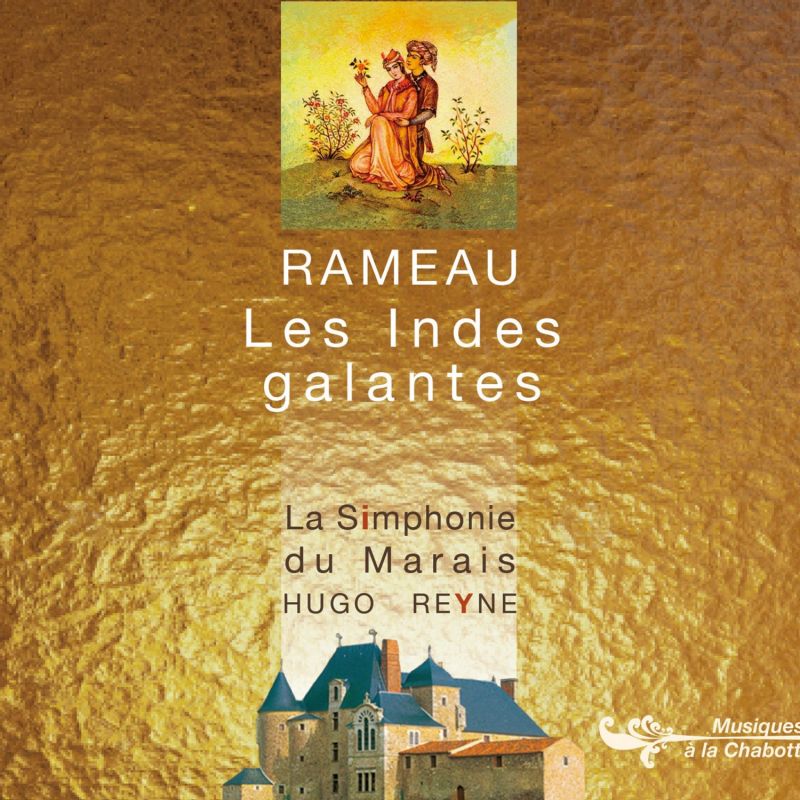RAMEAU Les Indes galantes
View record and artist detailsRecord and Artist Details
Composer or Director: Jean-Philippe Rameau
Genre:
Opera
Label: Musiques à la Chabotterie
Magazine Review Date: 11/2014
Media Format: CD or Download
Media Runtime: 202
Mastering:
DDD
Catalogue Number: 605013

Tracks:
| Composition | Artist Credit |
|---|---|
| (Les) Indes galantes |
Jean-Philippe Rameau, Composer
(Le) Chœur du Marais (Le) Symphonie du Marais Aimery Lefèvre, Bellone; Osman; Huascar; Ali; Adario François-Nicolas Geslot, Valère; Tacmas Hugo Reyne, Conductor Jean-Philippe Rameau, Composer Reinoud van Mechelen, Carlos; Damon Stéphanie Revidat, Hébé; Emilie; Zaïre Sydney Fierro, Alvar Valérie Gabail, L'Amour; Phanie; Fatime; ZIma |
Author: David Vickers
Six core soloists perform all 17 roles in Reyne’s live recording made at Vienna’s Konzerthaus in January 2013. Valérie Gabail sings Zima’s triumphant song in praise of love and youth (‘Regnez Plaisirs et Jeux’, with trumpet, woodwind and timpani) with a full-bodied radiance and intelligence far beyond the coquettish mannerisms one sometimes encounters in other versions (although the Herculean approach to a concluding high D is a rare misstep). The highlight of the entrée ‘The Flowers of Persia’ is the sweetly balanced quartet ‘Tendre amour’ (albeit with the high tenor François-Nicolas Geslot slipping slightly under with some sustained repeated highest notes). The orchestra of La Simphonie du Marais play dances with charming élan but without the noise of actual steps (although one does hear page turns, creaking instruments and coughs from time to time). The thumping bass drum in the Pipe of Peace ceremony dance ‘Les Sauvages’ ensures that Rameau’s evocation of the Louisiana Sioux has never seemed so clearly realised, and the concluding chaconne features excellent playing from the trumpets and woodwind. The comprehensive booklet includes the full libretto (albeit in French only), and Reyne’s engaging essay includes detailed comments on Rameau’s music, illustrations both iconographical and musical, and a detailed synopsis. From every point of view that matters, this is a special Ramellian achievement.
Discover the world's largest classical music catalogue with Presto Music.

Gramophone Digital Club
- Digital Edition
- Digital Archive
- Reviews Database
- Full website access
From £8.75 / month
Subscribe
Gramophone Full Club
- Print Edition
- Digital Edition
- Digital Archive
- Reviews Database
- Full website access
From £11.00 / month
Subscribe
If you are a library, university or other organisation that would be interested in an institutional subscription to Gramophone please click here for further information.




